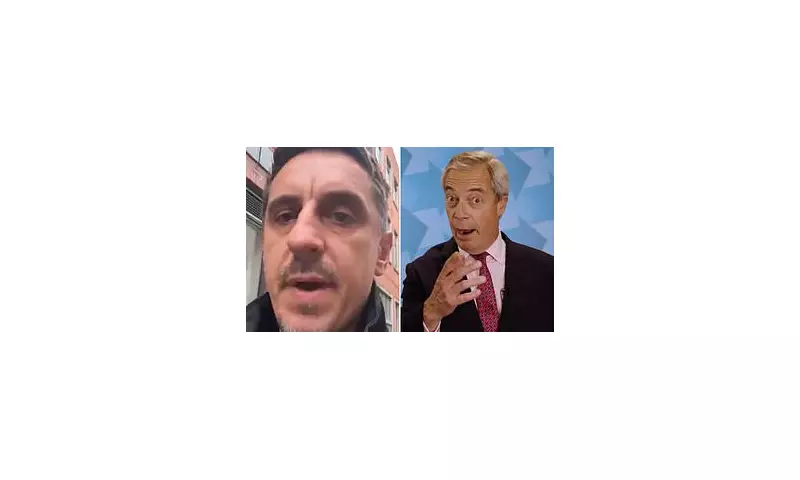
Sky Sports has made the dramatic decision to cancel Nigel Farage's scheduled appearance on their flagship football show Monday Night Football, following a fiery on-air confrontation with pundit Gary Neville that has sent shockwaves through the sports broadcasting world.
The On-Air Explosion That Changed Everything
The controversy erupted during Monday's broadcast when Neville launched into an impassioned monologue about political symbolism in football. The former Manchester United defender took direct aim at the Union Flag, questioning its representation in modern Britain and sparking immediate backlash from viewers and politicians alike.
Farage, who had been booked to provide political analysis alongside Neville, found himself at the centre of the storm before he'd even appeared on screen. Sources close to the situation reveal that Sky executives made the swift decision to pull the Brexit architect from the programme mere hours before broadcast.
A Clash of Titans: Football Meets Politics
The incident represents the latest collision between sports broadcasting and political commentary, a trend that has become increasingly prominent in recent years. Neville, never one to shy away from political discourse, has increasingly used his platform to express strong views on social and political matters.
Meanwhile, Farage's planned appearance signalled Sky's intention to bring direct political debate into their football coverage, a move that has now spectacularly backfired. The Reform UK leader has become a regular media commentator despite his controversial political history.
Industry Reaction and Fallout
Broadcasting insiders are divided on Sky's handling of the situation. Some argue the network acted responsibly to prevent further controversy, while others accuse them of censorship and bowing to political pressure.
The decision raises crucial questions about:
- The boundaries between sports analysis and political commentary
- Broadcasters' responsibilities in managing controversial opinions
- The increasing politicisation of football coverage
- Free speech versus editorial control in live broadcasting
Neither Neville nor Farage have made public statements about the incident, though sources suggest both camps are furious about how the situation has been handled.
What This Means for Sports Broadcasting
This incident is likely to have lasting implications for how broadcasters approach political content within sports programming. The line between sports analysis and political commentary has become increasingly blurred, and this confrontation may force networks to establish clearer guidelines.
As the debate continues to rage on social media and in political circles, one thing is certain: the relationship between football broadcasting and political discourse will never be quite the same again.






